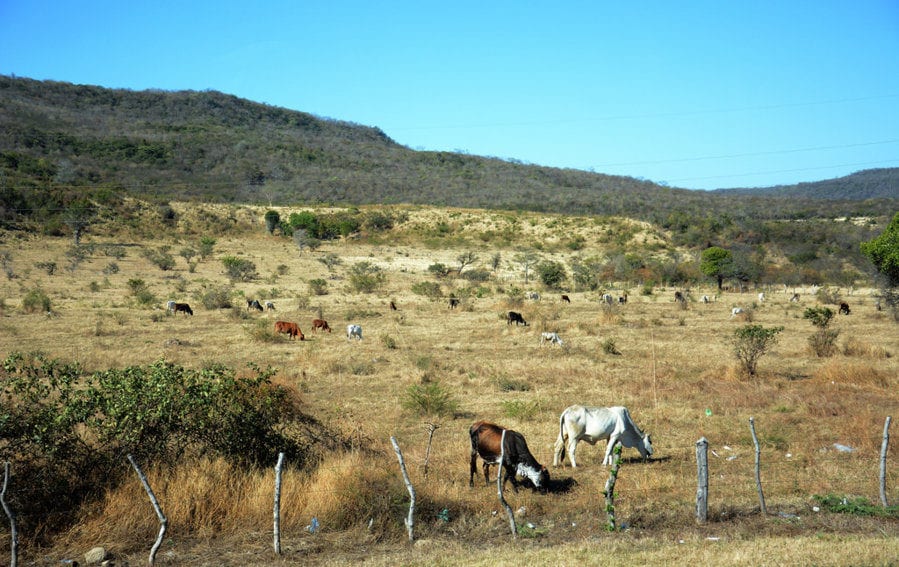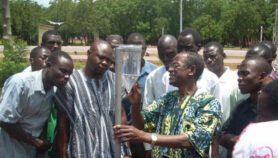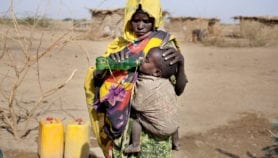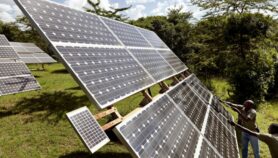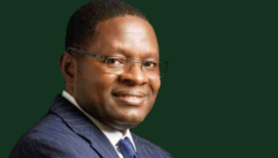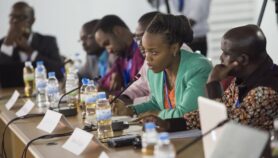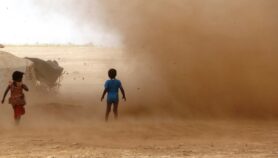By: Samuel Hinneh
Send to a friend
The details you provide on this page will not be used to send unsolicited email, and will not be sold to a 3rd party. See privacy policy.
[ACCRA] A new regional centre in Ghana seeks to develop the capacity of scientists to understand and solve climate change and land use-related problems.
The centre is part of a seven-year programme — West African Science Service Center on Climate Change and Adapted Land Use (WASCAL) — involving ten countries in West Africa.
The programme, which started in 2010, is funded by the German government.
The WASCAL regional centre on climate change and land use was commissioned last month (4 March) at the Kwame Nkrumah University of Science and Technology (KNUST), a partner institution in Ghana.
“Based on our own research, we will be able to guard against or reduce the impact of climate change because it may affect areas where there may be excess flooding, drought, [and] desertification.”
Samuel Nii Odai, KNUST, Ghana
The centre will train scientists at master’s and PhD levels to develop skills in data acquisition, analysis and interpretation. It will focus on using remote sensing, empirical and mathematical modelling tools relating to climate change and land use.
The 1.9 million euro (around US$2.6 million) WASCAL regional centre networks universities from Benin, Burkina Faso, Cote d’Ivoire, the Gambia, Ghana, Mali, Niger, Nigeria, Senegal and Togo with additional support from German researchers.
Samuel Nii Odai, the pro-vice-chancellor of KNUST and the founding director of the WASCAL centre, says there is the need to build the capacity of researchers in West Africa to better understand climate change and its impact.
“Based on our own research, we will be able to guard against or reduce the impact of climate change because it may affect areas where there may be excess flooding, drought, [and] desertification,” he tells SciDev.Net.
Odai says ten scientists will be selected from each of the countries for training, adding that the centre will enable researchers to identify problems, propose solutions and debate issues of climate change and land use.
Francis Obeng, a senior lecturer at the faculty of agribusiness and communication sciences at the University of Development Studies in Ghana, says the knowledge will help mitigate the negative effects of climate change, including floods, and create awareness on these issues.
“The frequency of floods and drought is increasing now in northern Ghana and it is becoming more difficult to even predict how the weather is going to be like,” says Obeng. “The period for rainfall to start is now shifting, so crop production is suffering and a lot of the water bodies are also drying up.”
Paul Vlek, senior fellow at the University of Bonn, Germany and the executive director of WASCAL, says given the expanding food needs of West Africa and the important role land plays in generating ecosystem services such as clean water and biodiversity, the region must come to terms with the strains that climate change will place on the environment and society.
“To adequately deal with this [stress], serious investments need to be made in capacity building and research to provide guidance to policymakers and stakeholders to preserve their resources and livelihoods,” Vlek notes.
This article has been produced by SciDev.Net's Sub-Saharan Africa desk.


